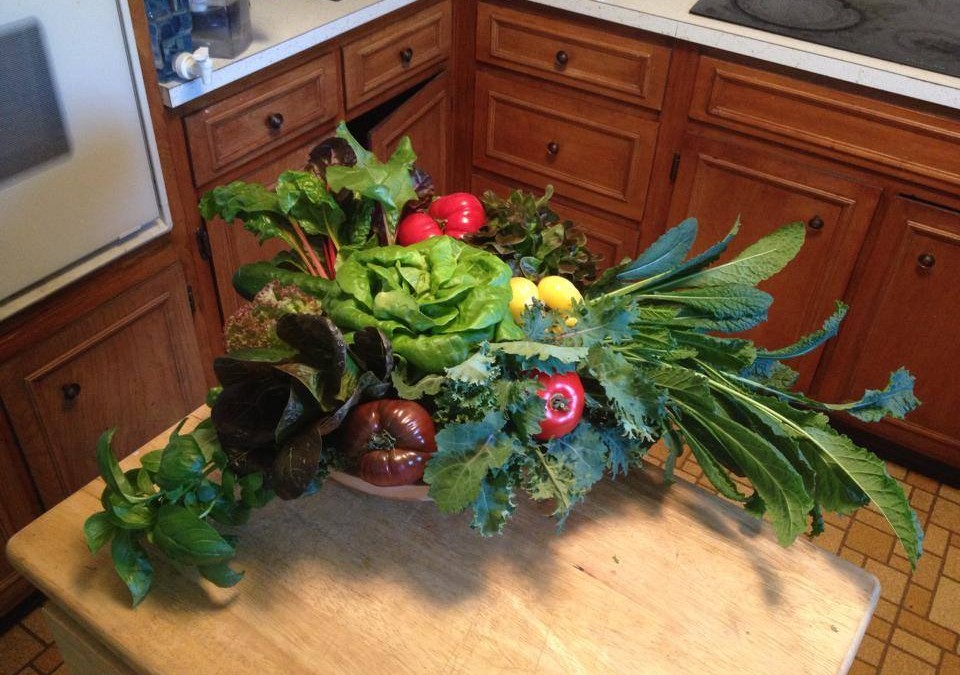
by andre | Mar 13, 2015 | Blogs, Daily Change, Stories |
Edible gardens evoke multiple memories for me, ranging from distant childhood recollections of our family’s garden in the backyard behind the garage, to more recent ones of holidays with my in-laws. My parents-in-law have grown a garden for decades, and when I visit I often get to enjoy fresh produce: green peppers, cucumbers, zucchini, beans, and squash. When I lived in New York City, my wife and I would often spend Saturday mornings walking to our neighborhood farmers market in Sunnyside, Queens. We grew to enjoy the delicious variety of local foods: crisp apples from upstate New York, juicy peaches, and farm-fresh tomatoes.In addition to enjoying the diversity and quality of the food at the farmers market, we also appreciated knowing where each item came from and directly interacting with those folks involved in transporting our food. So when we moved to a suburb of Denver in 2013, we wondered if we would be limited in our food choices to what was available at our local supermarket.While we are currently within easy biking distance (and even easier driving distance) to several grocery stores and organic food stores, not everyone in the Denver metro area is as fortunate to have access to affordable and nutritious food. Many neighborhoods in Denver can be classified as “food deserts,” areas where grocery stores are virtually nonexistent and fresh fruits and vegetables are extremely rare. Go here for a map of Denver food deserts. These food deserts not only affect the people living in the area–they also have an impact on our public health (for more information, go here to read the University of...
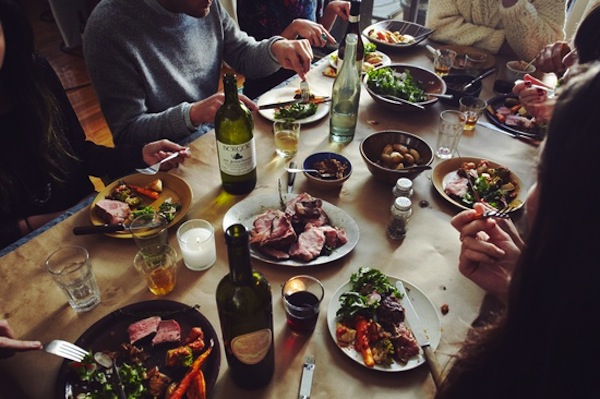
by andre | Mar 12, 2015 | Blogs, Daily Change, Stories |
Socializing hinges upon consumption, well at least it does for many of us. All too often, the scene of good times conjures the commercial of friends sharing beer or ordering each other drinks at a bar, or sharing a nice meal out. I love to bask in the glory of a dish cooked to perfection. I love it even more when the tastes are shared over banter and story time amongst friends. Food has a funny way of bringing us together. If we’re cowboys, the sound of the dinner bell brings us home. Ice cream truck tunes bring us and any kid on the block to at least look toward the street, if not race out curbside, to fork over our dollars for a cold treat. We gather around the fire to roast marshmallows and make smores while sharing scary stories. It’s not that we only gather to eat, or that we eat to gather; rather, we know that food enhances the gathering and vice versa. Friends make the food more savory, each bite sweeter, as does the food make your buddies’ jokes just a tad more funny. We adopt norms and etiquettes in how we communicate and express ourselves to one another as friends. There is an amount of social capital built in our food behaviors. Food is glue that can certainly bind but also stand in the way of relationships. On one hand, hospitality outwardly fosters the establishment and strengthening of bonds; however, one can see how a lack of dietary agreement or access to food can create obstacles to relationships. Food can highlight some serious social inequalities influenced by class, race, and gender. It’s pretty difficult for a...
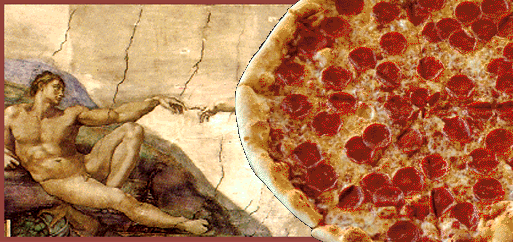
by andre | Mar 11, 2015 | Blogs, Daily Change, Stories |
What’s your relationship with food? Is it something to be enjoyed, or just fuel for living? Do you know where it comes from? Are you a foodie, hunting for the latest and tastiest? Maybe you crave food. Maybe you respect it. Maybe you’re afraid of it. With just a handful of days remaining in our advocacy for hungry children, my relationship with food feels like it’s in flux. In my life I’ve almost never wondered where my next meal would come from. Food has always been ready to hand, available to fill my stomach and tickle my tongue. I’ve always taken it for granted. Have you ever been in a relationship where you’ve been taken for granted? It doesn’t feel good. Today I can’t assume the coming of my next meal. We missed our first one last weekend. Of course our deprivation is both time limited and voluntary—stark and meaningful differences compared to the 800 million people who don’t have enough to eat day in and day out. Nevertheless, going without food, and not knowing when that will happen, changes my relationship with it. I’m now much slower to simply assume I’ll go to bed with a full stomach. Another thing that has changed is my ability to choose. It used to be, my only concerns were: What kind of food will I eat today? When, and how much? When having food goes without saying, then these questions are what we say instead. My relationship with food has been one of boundless consumerism: this, not that. Now, not later. But today, I can’t make those decisions. The ingredients and...
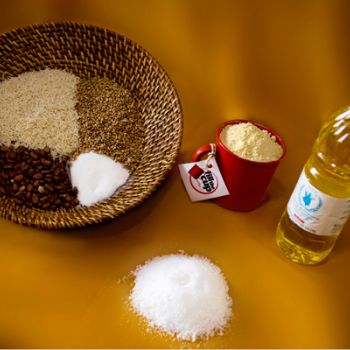
by andre | Mar 8, 2015 | Daily Change, Stories |
There are a lot of books being written these days about the importance of being radical. There are different variations, but the main idea is that God is calling us to be world changers in extraordinary ways. Over the years, I’ve felt drawn to this message, and I always thought of myself as a world changer. I told my wife recently that I’m finding satisfaction in the ordinariness of my life. I feel called to be faithful to God in simple, ordinary ways, that I don’t think anyone would mistake for radical or world-changing. Parent, spouse, friend, lawyer. I’m skeptical of causes that oversimplify complex problems. I’m kind of cynical about our capacities to truly effect change in any global sense. Am I getting you down yet? Over the past 17 days, I’ve been working with this crazy little non-profit called 25 in Change. We’ve been on a journey of advocacy, eschewing our normal daily diets for three small meals of rice and beans, and only when someone has donated $25 to provide food to children. It’s an experience that some people would consider unorthodox, maybe even a bit radical, but it has actually been a life giving journey into ordinary, everyday advocacy… moving toward empathy and connection with people experiencing malnutrition or overnutrition. There are people in our spheres of influence who struggle to feed their kids, families who are anxious about putting nutritious food on the table. There are young kids who struggle to concentrate in school because they’re eating junk food and soda for breakfast. A couple of times during 25 in Change, I’ve been...
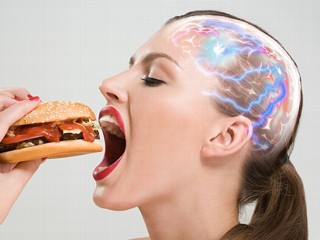
by andre | Mar 6, 2015 | Daily Change, Stories |
Nelson sat across from me talking about bread. That was what he missed most—more than candy, more than oily buttered popcorn. But he had to avoid bread, he said, because that was what was keeping him from losing weight. He currently weighed 290 pounds and was less than six feet tall. That put him squarely in the obese category, but it was significantly better than the close-to-400 pounds he had weighed not long ago. Nelson’s surgery to reduce the size of his stomach had produced dramatic results, but he had started gaining the weight back, and was worried he had flushed thousands of dollars in medical expenses down the drain. Nelson was in my office to talk about his food addiction. As a therapist, I work with addiction all the time. I regularly treat people who are addicted to drugs and alcohol. But I also help people who are addicted to pleasurable everyday things like shopping, sex, work, the internet, gaming, and food. Food addiction is driven by the same neurotransmitters as drug addiction. The dopamine reward is our brain’s way of saying “That feels good. Do more of that.” Our ancestors needed that message to get them to consume foods like fat, sugar, and carbs, and we developed preferences for the tastes and mouthfeel they produce. Those foods were necessary to fuel a days-long hunting journey. But necessary for eight hours at a desk? Followed by four hours in front of the TV? Not so much. For people like Nelson, the dopamine reward system has been hijacked by their emotional life. While pizza tastes good...
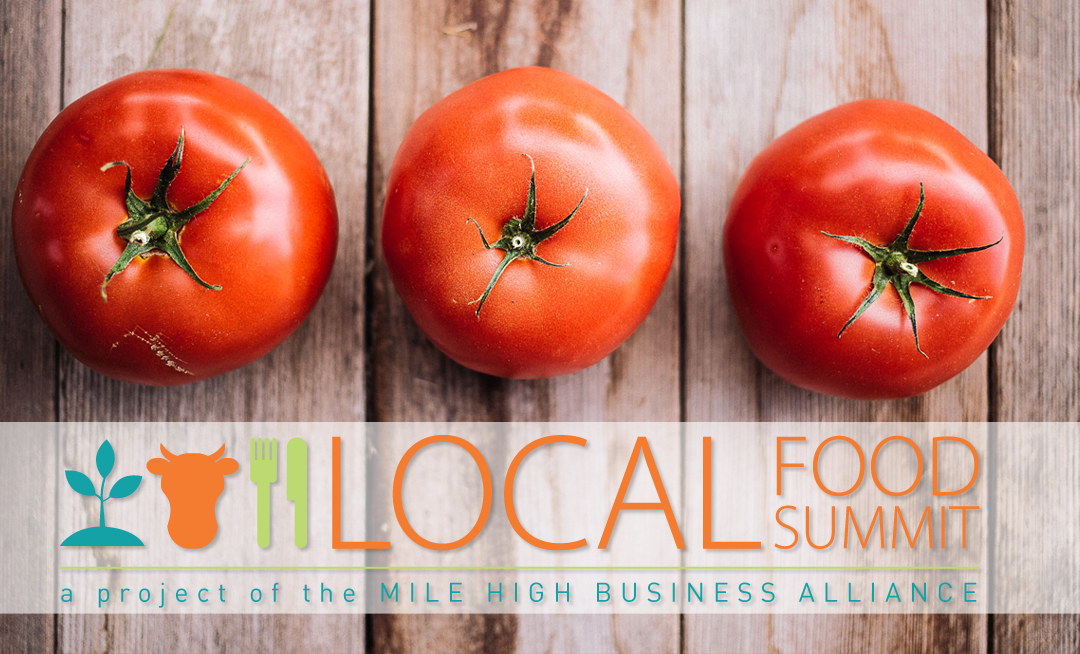
by andre | Mar 4, 2015 | Daily Change, Stories |
Over days 13 and 14, while eating only rice and beans, I had a unique opportunity to see the diversity of food which can be sourced primarily from local establishments and farmers in the middle of a Colorado winter. During these last two days, I’ve been at the Local Food Summit in Denver. About 400 Denver local food professionals had the chance to speak to one another, share our perspectives with elected officials of the city and state, and find a new direct contact for fresh organic food such as Lion’s Mane mushrooms grown in the middle of winter. Keynote Speakers at the conference included Chef Ann Cooper, Alan Lewis of Natural Grocers, and Mayor Michael Hancock; all of them spoke about the necessary and real transformation of our food system that is taking place today and how much is still left to do. During the summit, I spoke with the winning chef of the competition among professionals for who could cook the best locally-procured meal for a judges-panel of other chefs. She won with her Ricotta and Herb Stuffed Chicken Leg, topped with a palisade peach preserve reduction sauce; the plating was beautiful, I can only imagine it tasted as good as it looked. As we spoke about her dish and she flipped through closeup pictures—on day 14 of eating only rice and beans, all I could do was stare at her amazing meal—and not a casual stare. It was a lusty gawking like a newly pubescent boy seeing girls differently for the first time. Gandhi once said “There are people in the world so hungry, that God cannot appear to them except in the form of bread.” In that humanely raised organic...
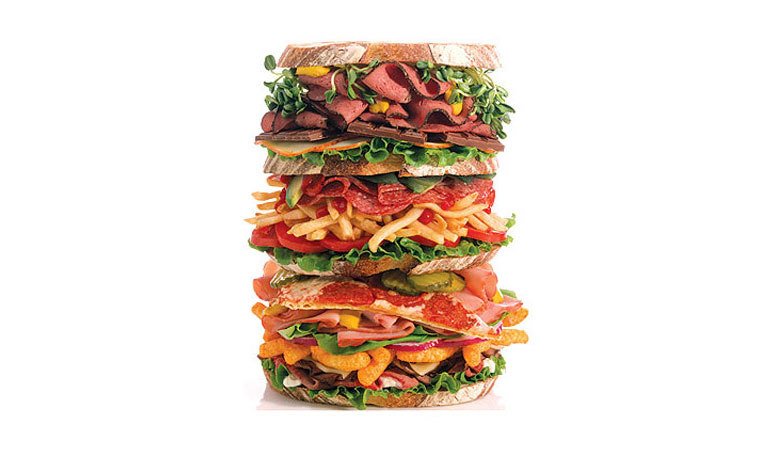
by andre | Mar 1, 2015 | Daily Change |
In junior high school, I had a craving. For food. Junk food. After Little League baseball practices full of ground balls and hook slides, line drives and double plays, I’d eagerly anticipate a ride to the nearest convenience store. Entering the temple of delights, I’d dash to the back and fill up a large cup with a spritz of every variety of soda on the soda machine (a drink my friends dubbed—perhaps all-too-aptly—a “suicide” drink). Complement that with a bag of crunchy “onion rings” and things got better. To top it off, with any leftover change, I’d scoop up a glazed “apple pie” packed with a gooey filling of, er, “apples.” Excuse me while I wipe the drool off of my keyboard. Now, while I no longer eat this way as an adult, why is it that when writing this I had to pause when I realized my mouth was watering when describing it? What is it about food laden with salt, fat, and sugar that has such a visceral pull on me, years later? I’m certain that more and more consumers are becoming aware about the health costs of junk food. Yet major food corporations continue to manufacture junk food of all varieties in response to consumer demand, designing and marketing products with “sensory-specific satiety“and “vanishing caloric density.” From hidden sugars in yogurt and pasta sauce to fast-food salads with more calories than burgers, our system of food production and consumption is broken in countless ways. And yet it still reaps enormous financial profits for the food industry. I’d guess that many well-read and thoughtful folks implicitly sense that junk...

by andre | Feb 26, 2015 | Daily Change |
Over these last eight days, I’ve been waking up in front of my fridge wondering what I’m doing there. It’s not as dramatic as Tyler Durden’s experience in Fight club where “I nod off, I wake up in strange places, I have no idea how I got there”. But, I am finding myself all of a sudden standing in front of an open fridge and staring into it; briefly daydreaming about its contents and then waking up to the futility of it all: I can’t eat it; I’m on rice and beans for another 17 days. While I now catch myself every time I open the fridge (at least I hope so), what I’m really waking up to is my food habit loop. This is, according to Charles Duhigg, author of the bestselling book The Power of Habit, a “process within our brains that is a three-step loop. First, there is a cue, a trigger that tells your brain to go into automatic mode and which habit to use. Then there is the routine, which can be physical or mental or emotional. Finally, there is a reward, which helps your brain figure out if this particular loop is worth remembering for the future: THE HABIT LOOP”. Mark Miller is another Advocate during this round. He is a professional addiction counselor and therefore much better equipped than I am to talk about food addiction and so forth (and he will later on), but my unconscious habits and routines of going to the fridge keep bringing me back to the ideas of sleep, sirens tempting me to that refrigerated rock, and the change...
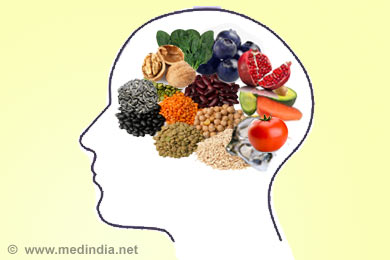
by andre | Feb 25, 2015 | Daily Change |
Brainfood or food for thought? ‘Brain food’ is food believed to be beneficial to the brain, especially in increasing intellectual power. What happens when you have no food to eat at all, or eat just enough food to keep you moving? Remember that time you skipped breakfast and went to work? Or that time you were just in the flow of work and forgot to eat lunch or dinner? Do you remember how drained you felt, how hard it was to concentrate, or how irritable you became? We all know that eating right can improve brain function, memory, and concentration, but you refused to allow your hunger to stand in between you and the tasks at hand. You also knew there would be another meal, perhaps a victory meal that was likely one of your choice. Maybe that victory meal served as a reward for toughing out your hunger and showing some self-sacrifice. Living with hunger and malnutrition does not have the luxury of reward meals. Throughout the globe, people receiving meal support from agencies like the World Food Programme (WFP) face a sobering reality that consists of consuming ~1500 calories per day to walk, play and most importantly learn. The brain is a primary destination of nutrients absorbed from digested food, so food directly impacts a child’s brain growth, function, memory, and concentration. At day 7 of my 25 day advocacy for school-aged kids facing hunger, I feel uneasy not knowing whether I can eat tomorrow. I feel the tension in my shoulders grow and the knot in my stomach tighten when I face missing meals. Despite having the certainty of eventually eating again, I have come to...

by andre | Feb 24, 2015 | Daily Change |
As a person who attended seminary and worked as a pastor in churches and other faith-based non-profits for most of my career, it came as a surprise to the majority of people I knew that I wanted 25 in Change to partner with the World Food Programme instead of a Christian hunger relief organization. What I heard most often was that the WFP only feeds children (which isn’t the case), but doesn’t share the gospel with them (also not the case). They argued that we should just choose one that does both, so we get the most bang for our buck. But the truth is that the gospel has nothing do with bangs or bucks, so those seem fairly irrelevant metrics of success. My elevator pitch for why we choose the WFP is simple: The World Food Programme is the most cost-effective hunger relief organization in the world. They are the best-funded, with the most people on the ground in countries in dire straits, with the most educated and talented administration, and they have the best logistics for tackling malnutrition around the globe. Their nearest competition is a distant second place. These are great reasons for choosing them, but an even more important reason is that food should never be used as a method of coercion whether for political, personal, or ecclesial gain. Do the hungry really hear the gospel when they are choosing between becoming Christians or starving? Ghandi once said “There are people in the world so hungry, that God cannot appear to them except in the form of bread.” The gospel is much more than just...
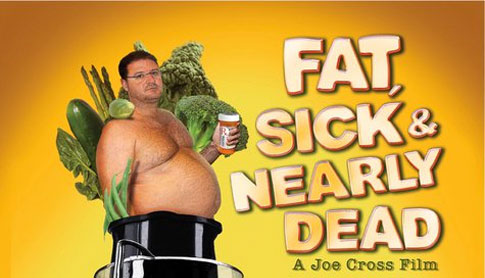
by andre | Feb 20, 2015 | Daily Change |
I’m a family physician at a community health center and I see this every day. Almost all of my patients are overweight, and half of them are obese. They come to me with diabetes, high blood pressure, heart disease, out of shape and out of breath, severe swelling in their feet and legs, skin ulcers from inactivity, and significant pain from their spine through their feet due to carrying the weight of a whole extra person around with them all the time, and the degenerative arthritis that comes from that. They suffer from poor self esteem, hopelessness, and frustration with not being able to do the things they want to do…go fishing with their friends, play with their kids at the park, walk around the grocery store without sitting down. They suffer physically and emotionally and feel excluded from life and powerless to change. It doesn’t have to be this way. Let’s take a brief intermission for facts, because blogs without externally verifiable facts should be viewed with suspicion. Then continue below: > The World Health Organization defines obesity as “a condition of abnormal or excessive fat accumulation in adipose tissue, to the extent that health may be impaired” (WHO, 1998). > 300,000 Americans die each year from obesity-related causes. > This is not just a problem in America or the rich countries of the world. The Food and Agriculture Organization (FAO) wrote on “The developing world’s new burden: obesity” (https://www.fao.org/focus/e/obesity/obes2.htm) Here’s one of the best documentaries I’ve seen on the topic: Or you click here to watch a 9:00 minute summary of why a hunger advocacy organization...

by andre | Feb 19, 2015 | Daily Change |
At dinner just 48 hours ago, my principal concern was whether to order the “Mongolian BBQ Duck Buns”, “Devils on Horseback”, or “Scallops a la Plancha”, at Linger. We ordered all three of course, with “Caramel Crème Brûlée” to boot. Today, on day two of my advocacy with “25 in Change”, I stare into a small red cup filled with garbanzo beans, brown rice, a bit of vegetable oil, and a pinch of salt. And with every bite, I meditate on what I couldn’t see before, on hearing what I couldn’t before, and certainly on feeling what I couldn’t feel before. How am I to feel, knowing that some 805 million (about one in nine) people in the world don’t have enough food to lead a healthy active life? Or, that poor nutrition causes nearly half of deaths in children under five – 3.1 million children each year? It’s numbing to consider that our global state of malnutrition kills more people than war, natural disasters, murder, AIDS, TB, and malaria, combined. Global hunger in a world of food perpetuates a double injustice: it robs hungry people of food, and leaves those of us who have it (in our inability to understand how people are starving to death when Mongolian BBQ Duck Buns are so easy to obtain) with a paralysis to act. The injustice paralyzes all of us, like deer caught in headlights – The driver being surprised by the deer, not knowing what to do, and the deer watching bright lights approach, unaware of the rapidly impending collision. If only the Snickers’ “Hungry?” commercial worked both ways in this food injustice, that I could go...













